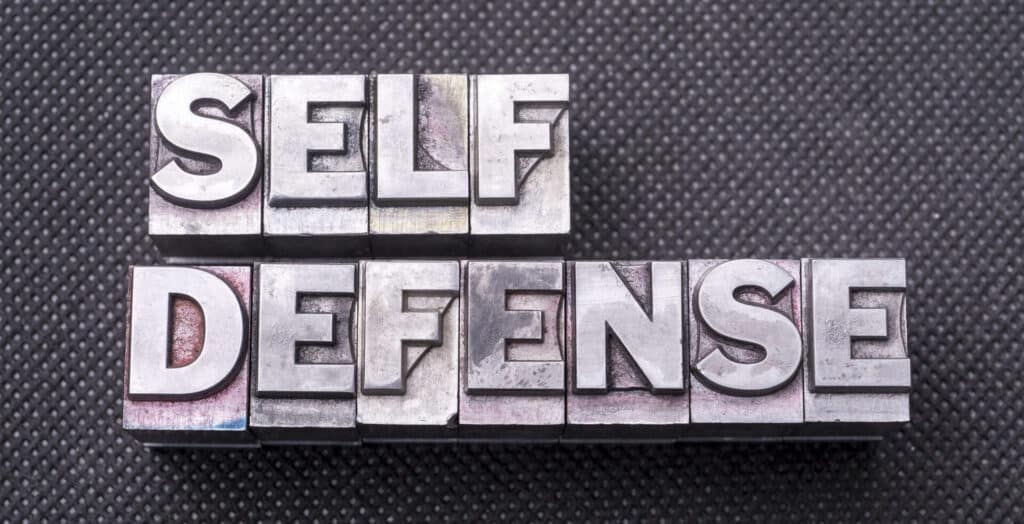
Criminal charges for simple assault and aggravated assault carry severe consequences in Pennsylvania. Depending on the seriousness of the case, you may face a lengthy prison sentence, significant fines and court costs, and a designation as a violent felon on your permanent criminal record. Having an experienced PA criminal assault defense lawyer on your side is your best chance of avoiding being convicted of assault and avoiding jail.
Don’t Let an Assault Conviction Can Destroy Your Future
If you are convicted of assault, especially domestic violence simple assault, you will face significant negative consequences. An assault conviction can damage your reputation and cause you to lose opportunities in the job market.
Additionally, an assault conviction may lead to a criminal record, making obtaining housing admission into a college or graduate school difficult. Therefore, if the police charge you with simple assault, getting the charge dropped or reduced is critical.
Pennsylvania Assault Charge Attorney
Did the police charge you with Pennsylvania simple assault? Are you searching for a simple assault attorney near me? I have aggressively defended over a thousand domestic violence simple assault cases in Bucks County, Montgomery County, Philadelphia County, Delaware County, and Chester County, Pennsylvania.
Contact me at (215) 752-5282 for a free initial consultation, or fill out the confidential contact form for an immediate response. Appointments are available after business hours and on weekends.
Simple Assault Pennsylvania
There are generally 5 ways the police can charge you with simple assault in Pennsylvania, including the following:
- You attempt to cause bodily injury to a person
- You intentionally, knowingly, or recklessly cause bodily injury to a person
- You negligently cause bodily injury to another individual with a deadly weapon
- You attempt by physical menace to put another person in fear of imminent serious bodily injury
- You injure a police officer, prison employee, or mental health facility employee with a hypodermic needle during an arrest or body search
The majority of simple assault cases involve the first two categories.
Simple Assault vs Aggravated Assault
It is essential to understand that the police can charge a person with simple assault or aggravated assault even if the alleged victim does not suffer an injury. In cases where a physical injury occurs, Pennsylvania assault law distinguishes between bodily injury and serious bodily injury.
Simple assault charges generally involve bodily injury or an attempt to cause bodily harm. An example of a bodily injury may include a minor laceration to a part of the body, a bloody nose, or a soft tissue injury.
The Main Difference in Aggravated Assault Offenses
In comparison, aggravated assault charges typically involve serious bodily injury or an attempt to cause serious bodily injury. An example of a serious bodily injury may include a severe stab wound, a gunshot wound, or a fractured skull.
Finally, the simple assault statute also requires that you possess a lower criminal intent. As a result, it is much easier for the police to charge you with simple assault when compared to aggravated assault.
Do I need a Lawyer for an Assault Charge?
Yes. There are many serious consequences if a judge or jury convicts you of simple assault. As a result, you may lose your job and be sent to jail. Therefore, it is critical to contact an assault charge attorney as soon as the police file criminal charges or as soon as the police begin an assault investigation.
I can evaluate any possible legal defenses you may have, including self-defense or justification. In that case, I may use a defense investigator to acquire exculpatory evidence and interview defense witnesses.
Can I get a Job with a Simple Assault Charge?
It depends. Enlisting in the military or finding employment in the legal or medical professions will be challenging. Also, you be excluded from jobs related to nursing (including nursing aides), caretaking, childcare, and employment in certain service industry fields.
Protection from Abuse and Criminal Assault Crimes
It is common for the police to encourage alleged victims of domestic violence crimes to file for a PFA against the Defendant. The person filing the protection order is often the boyfriend, girlfriend, wife, husband, spouse, or domestic partner.
Have the police or county sheriff served you with a PFA Order? Read the PA Protection from Abuse (PFA) Defense Lawyer page for advice on defending yourself against a false PFA.
Simple Assault PA Sentence
The penalties for simple assault vary depending on an individual’s prior criminal record and the degree of force used during the offense. Also, the punishment may be more severe if the victim suffers serious injuries. The penalties for a conviction for simple assault are as follows:
- 1st-degree misdemeanor (alleged victim is 12 years of age or under, and the accused is 18 years of age or older)
- Up to 5 years in jail
- Up to $10,000 in fines
- 2nd-degree misdemeanor (attempt to cause or knowingly, recklessly, or intentionally causes bodily injury or deadly weapon used)
- Up to 2 years in jail
- Up to $5,000 in fines
- 3rd-degree misdemeanor (mutual combat: a mutual fight between the accused and the accuser)
- Up to 1 year in jail
- Up to $5,000 in fines
Can I Lose my Firearms Rights if I Am Convicted of Domestic Violence Simple Assault?
Yes. Unfortunately, a conviction for simple assault classified as a “misdemeanor crime of domestic violence” will prevent you from possessing a firearm for life under federal law.
A misdemeanor crime of domestic violence is defined as:
- An offense that is a misdemeanor under state or federal law: and
- The crime has the element of the use or attempted use of force; and
- The offense was committed by any of the following:
- The current or former spouse, parent, or guardian of the victim; or
- A person with whom the victim shares a child; or
- A person who was cohabitating with or had cohabitated with the victim as a spouse, parent, or guardian; or
- A person who was or had been similarly situated to a spouse, parent, or guardian of the victim
In addition, an individual convicted of a misdemeanor crime of domestic violence must turn over any firearms, other weapons, and ammunition within 24 hours of the conviction for the offense.
Finally, the firearms, other weapons, and ammunition may only be turned over to the Sheriff, appropriate law enforcement agencies, or a licensed firearms dealer.
Are you trying to preserve your firearm rights as a responsible gun owner? I am experienced in negotiating with the district attorney to reduce or withdraw charges to preserve the rights of lawful gun owners.
Aggravated Assault PA
What is Aggravated Assault in PA?
The police can charge you with felony aggravated assault in the following situations:
- You attempt to cause serious bodily injury to a person
- You cause serious bodily injury to an individual intentionally, knowingly, or recklessly under circumstances indicating an extreme indifference to the value of human life
- You attempt to cause or intentionally, knowingly, or recklessly cause serious bodily injury to certain public transportation officers, agents, employees
- You attempt to cause or intentionally or knowingly cause bodily injury to a person with a deadly weapon
- You attempt to cause or intentionally or knowingly cause bodily injury to a teacher, school staff member, school board member, or school employee
- You attempt by physical menace to put any of the officers, agents, employees, or other persons identified in the statute in fear of imminent serious bodily injury
- You attempt to cause or intentionally, knowingly, or recklessly cause bodily injury to a child younger than 6 years of age when the offender is 18 years of age or older
Is Aggravated Assault a Three Strikes Offense?
Yes. Pennsylvania has instituted a “three strikes” law requiring the imposition of severe mandatory prison sentences for individuals convicted of second and subsequent “crimes of violence.”
What is a Strike Offense?
An aggravated assault conviction involving an attempt to inflict serious bodily injury – or an actual infliction of serious bodily injury – on a person is considered a strike offense under Pennsylvania’s three strikes law.
An attempt to inflict bodily injury, or the actual infliction of bodily injury, on a police officer, judge, teacher, parole officer, or other individual specified under the statute will also be considered a strike offense.
What is the Consequence if you are Convicted of a Strike Offense?
Individuals convicted of a 2nd strike offense will face a mandatory 10-year sentence in prison. Finally, individuals convicted of a 3rd or subsequent strike offense are subject to a mandatory term of 25 years of imprisonment or a mandatory life sentence in prison without the possibility of parole.
Penalty for Aggravated Assault in PA
The penalties for aggravated assault vary depending on an individual’s prior criminal record, the victim’s status (police officer, teacher, child, elderly, or government employee), the level of force involved in the offense, and the extent of the victim’s injuries.
Also, the prosecutor can choose to apply a deadly weapon sentencing enhancement to certain aggravated assault offenses. The imposition of a deadly weapon sentencing enhancement will significantly increase the incarceration the accused will face if convicted. The penalties for a conviction for aggravated assault are as follows:
- 1st-degree felony
- Up to 20 years in state prison
- Up to $25,000 in fines
- 2nd-degree felony
- Up to 10 years in state prison
- Up to $25,000 in fines
First Time Simple Assault Charge in PA
Unfortunately, it is not possible to get ARD for a simple assault charge in PA. Therefore, if the police charge you with simple assault or any other offenses involving violence, you will not qualify for any first-offender programs unless the assault charge is withdrawn or reduced.
What are the Alternatives if I am Denied ARD for Simple Assault?
Fortunately, I often negotiate a plea bargain with the district attorney for a reduced charge in simple assault cases involving an isolated incident involving minor injuries to the alleged victim.
In addition, the prosecutor will require that the defendant complete anger management and a probation period as a condition of the domestic violence plea agreement.
Many of the negotiated plea deals will result in a withdrawal of the simple assault charge and a guilty plea to one or more summary offenses. Contact me to review your case to determine if you are eligible for a negotiated plea bargain.
How to Beat a Simple Assault Charge
Clients frequently ask me how to beat a simple assault charge in PA. At our first meeting, I will thoroughly review the facts and circumstances of the case to examine all available legal defenses to the charges. In some cases, the accuser is lying while other cases involve self-defense.
Unfortunately, the police file assault charges based solely on the accuser’s testimony without corroborating evidence.
Building an aggressive defense strategy to the charges at the earliest possible stage in the case is critical to a successful outcome. Therefore, it is essential to contact me as soon as you are under investigation or when the police file charges.
A Successful Assault Defense Begins with a Comprehensive Investigation
In some instances, I will employ an independent private investigator to acquire evidence establishing a defense to the assault charges. Independent defense investigators are highly skilled at obtaining testimonial and documentary evidence.
Examples of such evidence may include photographs, phone records, computer records, hospital records, surveillance videos, social media communications, and witness statements.
My professional network includes forensic experts in many fields who are highly experienced in challenging the evidence presented by the prosecutor during the trial.
Self Defense in PA
Self-defense is one of the most commonly used defenses against the charges of simple assault and aggravated assault in Pennsylvania. PA self defense laws allow a person to use force against another person under the following circumstance:
- When you believe that the force you use is immediately necessary to protect yourself from the unlawful use of force by another person
Moreover, once the accused presents evidence of self-defense, the burden of proof shifts to the prosecutor to disprove the defense beyond a reasonable doubt.
Using the Justification Defense in Assault Cases
Self defense is often referred to as “justification” and is a complete defense to simple assault and aggravated assault charges. For example, using force against another person is justified under Pennsylvania law if that force was used in lawful self-defense.
Self-defense can often be established through the testimony of the accused, the testimony of witnesses, inconsistencies in the victim’s statements, video surveillance, or the presence or absence of injuries to the victim or the accused.
I have extensive experience successfully defending individuals facing assault charges by establishing that the accused legally acted in self-defense.
Other Common Defenses to Assault Charges
- Defense of others
- Defense of property
- Accident
- False accusation
- Lack of injury to the alleged victim
- No intent to harm
- Mistaken identification
- Alibi
- Consent
- Testimony of character witnesses
In fact, I have utilized every one of these defenses to help people who are falsely accused of aggravated assault and simple assault.
Assault-related Offenses
Reckless Endangerment PA
Under Pennsylvania Criminal law, a person commits the crime of recklessly endangering another person if they recklessly engage in conduct that places another person in danger of death or serious bodily injury.
In Pennsylvania, a reckless endangerment charge can be filed as a single count in a criminal complaint; however, it is most often charged in connection with the following cases:
- Aggravated assault
- Simple assault
- Endangering the welfare of a child
- A DUI case that involves a serious accident with injuries
What is the Definition of Reckless under Pennsylvania Law?
An action is considered reckless if the individual consciously disregards a known risk. Nonetheless, the prosecutor is not required to establish an actual injury to achieve a conviction.
Instead, the prosecutor must only prove that the accused recklessly created a situation that placed a person or persons in danger of death or serious bodily injury.
It is often difficult for the prosecutor to meet the legal standard for recklessness required for a conviction. However, I can determine whether the actions alleged in your case fit within the legal definition of recklessness.
Reckless Endangerment Defenses
- The prosecutor fails to prove the act was reckless
- The district attorney is unable to prove the act placed others in danger of death or serious bodily injury
- A lack of credibility of the prosecution’s witnesses
- Mistaken identity
- You were acting in self defense or in defense of others
Recklessly Endangering Another Person PA Sentence
- 2nd-degree misdemeanor
- Up to 2 years in jail
- Up to $5,000 in fines
PA Harassment Law
Under Pennsylvania harassment law, a person commits the crime of harassment when, with the intent to harass, annoy, or alarm another, they:
- Strike, shove, kick, or otherwise subject a person to physical contact, or attempts or threatens to do the same; or
- Follows the other person in or about a public place or places; or
- Engages in a course of conduct or repeatedly commits acts that serve no legitimate purpose; or
- Communicates to or about such other person any lewd, lascivious, threatening, or obscene words, language, drawings, or caricatures; or
- Communicates repeatedly in an anonymous manner; or
- Communicates repeatedly at extremely inconvenient hours; or
- Communicates repeatedly in a manner not specified in the statute
What is the Definition of Course of Conduct and Communication?
Under the harassment statute, “course of conduct” generally refers to a continuing pattern of conduct over an extended period, however short that may be. In fact, the law defines the term “communicates” very broadly.
In addition, it includes verbal statements, written statements, telephone calls, text messages, and communications through social media and other internet platforms. Therefore, I can determine if the allegations in your case meet the standard for criminal harassment under Pennsylvania law.
How to Defend Against False Harassment Charges
The Pennsylvania harassment statute addresses specific types of behavior conducted with the intent to annoy, alarm, or harass another person. The Pennsylvania harassment statute distinguishes between harassment involving physical contact or an attempt to cause physical contact and harassment concerning behaviors more commonly associated with stalking.
The police often file physical harassment charges as a lesser offense in simple assault and aggravated assault cases.
However, in some instances, harassment charges involving physical contact can be successfully defended by establishing self-defense, defense of others, insufficient evidence, or mistaken identity. I can determine the most effective legal defense based on the facts of your case.
Challenging the Prosecution’s Evidence
The police will file harassment charges if they believe an individual has done any of the following:
- Communicated threats to another person
- Placed phone calls to a person at inconvenient hours
- Followed another person in public without a legitimate purpose
In some instances, it may be possible to establish, through investigation, that the accused was not responsible for the communications alleged by the victim. In other cases, it may be possible to establish that the alleged communications never took place or occurred under lawful and legitimate circumstances.
For example, a review by a forensic computer expert may be necessary if the communications involve social media, a computer, cell phones, GPS, or other electronic devices.
What is the Punishment for Harassment in PA?
- 3rd-degree misdemeanor (communicates in an obscene or threatening manner, anonymously or repeatedly at inconvenient hours or cyber-harassment of a child)
- Up to 1 year in jail
- Up to $5,000 in fines
- Summary offense (minor physical conduct, following another or course of conduct)
- Up to 90 days in jail
- Up to $300 in fines
The grading of the harassment charge will be enhanced by one degree if it involves the following:
- Minor physical conduct
- Following another
- Engaging in a course of conduct; and
- The accused has previously violated a Protection from Abuse Order involving the same victim, family, or household member
Stalking Laws in PA
Have the police charged you with stalking in PA? Prosecutors pursue stalking charges very aggressively in Pennsylvania. This policy is partly due to the potential for stalking behavior to escalate into more serious criminal conduct.
Under Pennsylvania stalking laws, stalking behavior can include any of the following:
- Following someone without a legitimate purpose
- Sending unwanted e-mail, text, or social media messages
- Damaging a person’s home or vehicle
- Communicating threats to a person’s family members or friends
- Showing up at a person’s home or workplace without a legitimate purpose
- Photographing or videotaping a person without that person’s knowledge
Definition of Stalking
Pennsylvania stalking laws are defined as follows:
- A person engages in a course of conduct or repeatedly commits acts against another person, including following the person without proper authority, under circumstances that demonstrate either an intent to place that person in reasonable fear of bodily injury or to cause substantial emotional distress to that person; or
- An individual engages in a course of conduct or repeatedly communicates to another person under circumstances that demonstrate or communicate either an intent to place that person in reasonable fear of bodily injury or to cause substantial emotional distress to that person
Penalties for PA Stalking
- 3rd-degree felony (2nd or subsequent offense or 1st offense, and the person has a previous conviction for a crime of violence or violation of a protection order involving the same victim, family, or household member)
- Up to 7 years in jail
- Up to $15,000 in fines
- 1st degree misdemeanor (1st offense)
- Up to 5 years in state prison
- Up to $10,000 in fines
Defending Against Stalking Charges
The prosecution must prove all the elements of the crime of stalking beyond a reasonable doubt to get a conviction. Furthermore, an investigation of the circumstances surrounding the charges may reveal weaknesses in the prosecution’s case.
For example, in some cases, it may be possible to establish that the accuser made up the allegations for revenge or to gain leverage in a family court proceeding.
In other cases, it is possible to prove that the accused was not following an individual but was legitimately and lawfully traveling to or from work or school. An alibi defense can often be used to establish that the accused was not physically present at the time and place of the stalking incident.
Another common defense to stalking charges can be established by demonstrating that the accused was mistakenly identified. Finally, if you are facing stalking charges in PA, I will comprehensively review the facts and evidence in your case to develop the most vigorous defense against the charges.
Don’t Risk Your Future with an Inexperienced Attorney
Simple assault, aggravated assault, recklessly endangering another person, harassment and stalking are all serious offenses that can lead to lengthy prison sentences, fines, and other harsh consequences.
I am highly knowledgeable in all areas of Pennsylvania’s assault laws and defenses. Finally, I will protect your rights by fighting the prosecutor and police by vigorously defending you against the charges.
Lawyer for Assault Charge
Are you facing a simple assault charge in PA? You begin to search for a domestic assault attorney. Fortunately, my criminal defense practice covers Bucks County, Montgomery County, Delaware County, Chester County, and all the nearby Pennsylvania Counties.
Acting quickly to protect your rights and build the most aggressive defense against the charges is critical. Phone lines are open 24 hours a day at (215) 752-5282. Call today for a free initial consultation, or fill out the confidential contact form for an immediate response.










